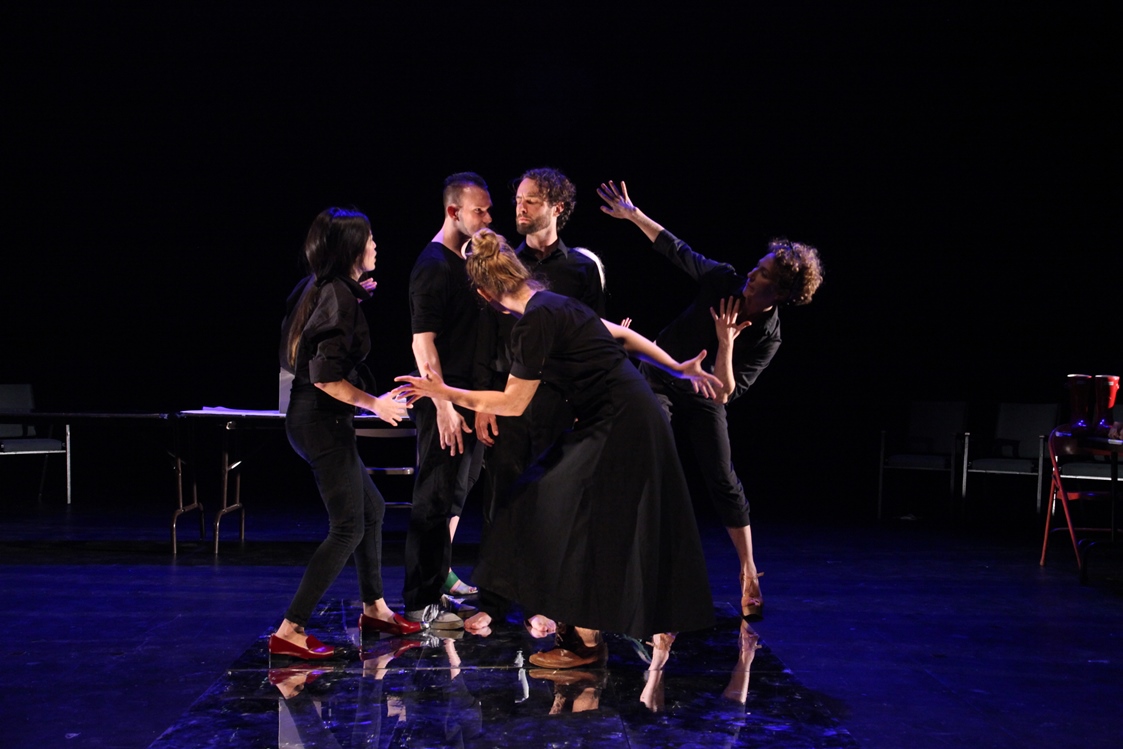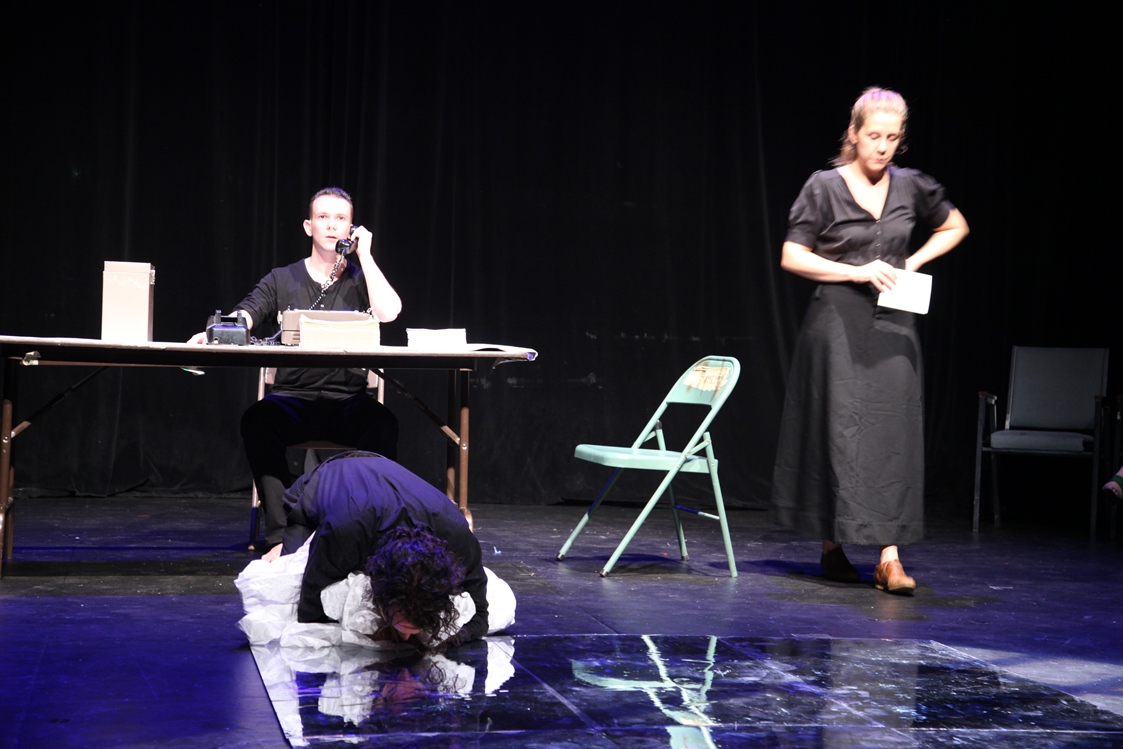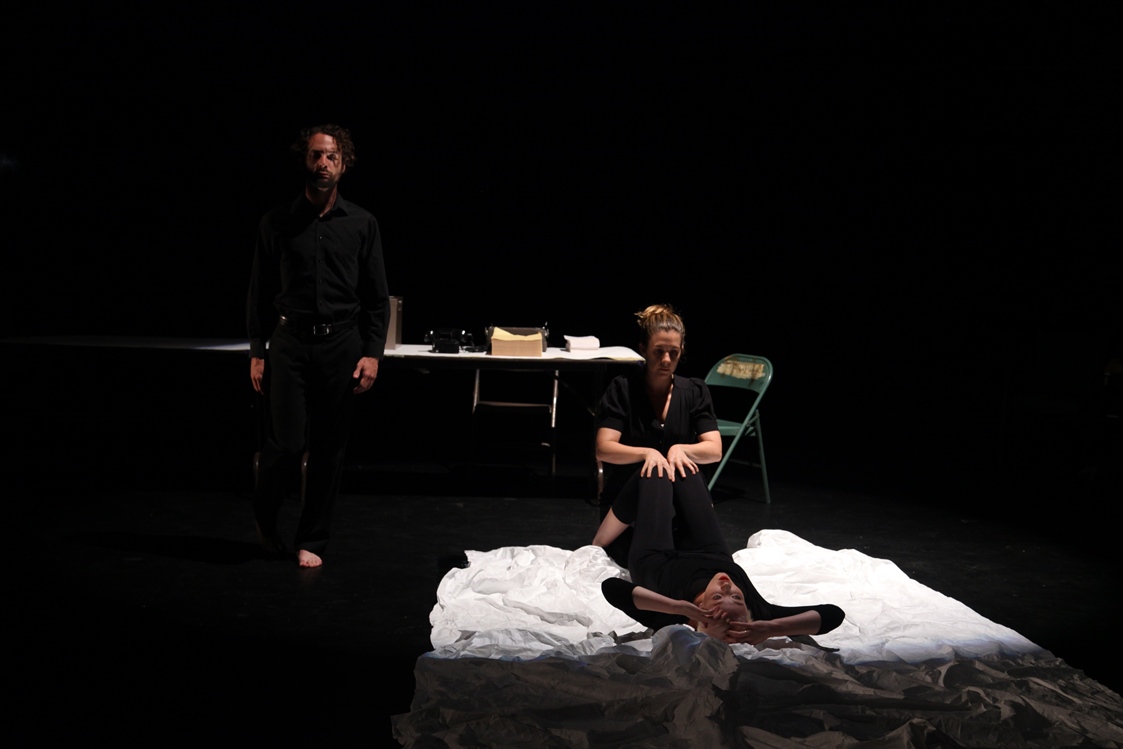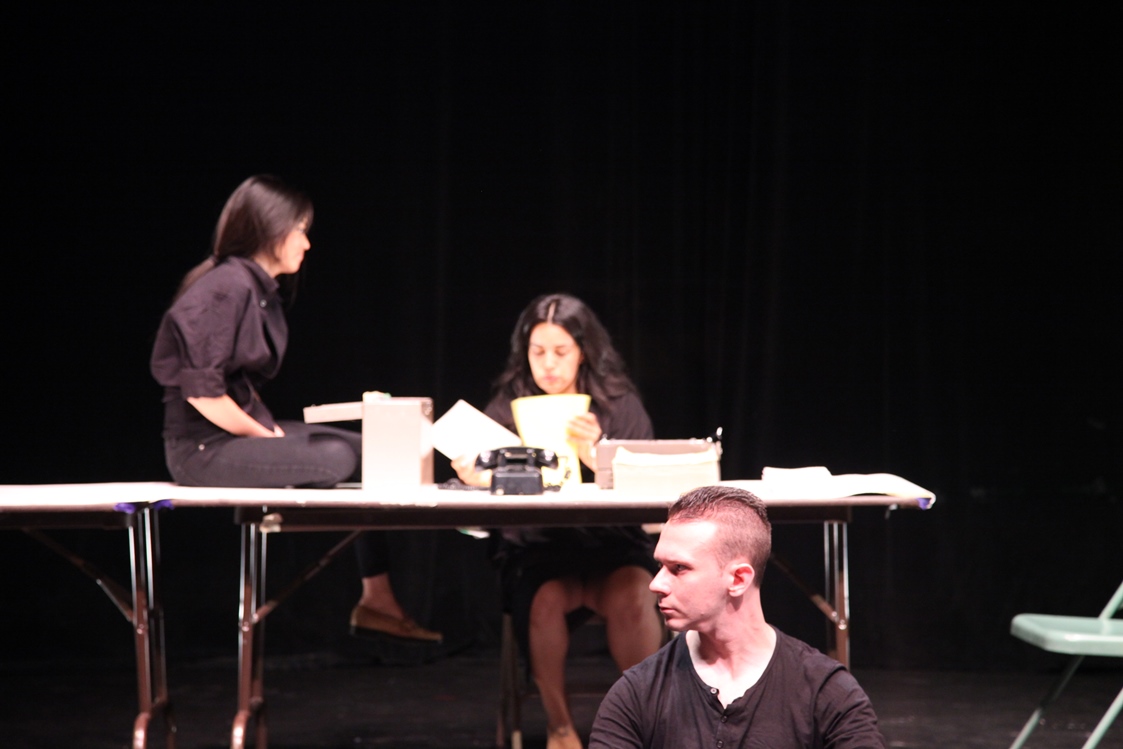Article by Luis Vazquez
The Theater for the New City was the place where surreal summarized the proceedings. I entered stage central where eight actors sat silently on a large sheet of wrinkled paper. In addition a table with a variety of shoes placed on it and two ladders at each end.
Seemingly unaware that all eyes were on them, the play “The (New) Trial” by Peter Weiss and adapted as well as directed by Dennis Yueh-Yeh Li parallels Frank Kafka’s “The Trial.” Instead of a bookkeeper during the Nazi German era, Joseph K. is an attorney who is the face of his corporation never knowing how it’s done, only that after a period of three years, he suddenly doesn’t do anything for three months and wonders how anyone cannot notice. And he gets a promotion to boot.
The play begins with a solo speech by Joseph K. (Brad Burgess) who describes the people’s right to know about the law and its inner workings as guarded by “Gatekeepers.” A futile exercise, proven in the story, and reflecting a real world reality. The ladders represent the literal rungs of promotion or demotion. During the performance a back table with a paper sheet layed across was torn piecemeal when dramatic points were made.
The kinetic energy of the characters set the tone throughout whether they walked aimlessly around, marching as a military duo, or writhing in pain while being touched sensually. The commonality between the main character in both plays are that they have contributed to negative world events unwittingly. The positions they hold do not match the ideologies they hold dear. In the end they are used and the question becomes, what now? There is no closure.
Joseph is played by three actors but embodied by Brad Burgess. He is an iconoclast. He is also a pure and innocent soul and that attracts the corporation. His counterpart is Burstner, played by Leah Bachar, who also fills the roles of Captain and Titorelli. Her raw sexuality threatens to explode out of her business suit. She is the visual that shields a cunning that places her at the top of the ladder though few are aware of it. Jody Doo as Franz and Rabensteiner showed a boldness in her words and she reverted to language switches in certain vents. The interspersing of tongues from English to Spanish, Russian to Chinese or German were random and added a unique touch to the dialogue of the actors.
The other character that stood out was Rabensteiner played by Omri Kadim, who also played Joseph K at one point. He was an overqualified accountant in not so many words, happy to stay docile in a controlled environment where nothing changes and surprises were all but eliminated. He challenged Burgess’ Joseph K. for doing the same thing. Yet Joseph had different motivations.
Maite Uzal was excellent as the Public Prosecuter as she pushes Rabensteiner to go for the promotion his talents imply. Her twin motherly stance interwined with casual teasing was excellently played. The interchanging of characters gave more depth to each role by giving a fresh insight that could only exist through fresh interpretations of the roles.
The characters reflect the corporate interactions of workers, often faceless and expendable. Some want nothing, others are about discipline, some reflect the status quo, and there is jealously, envy, and ambition. The debate between Joseph K and Burster about art and life and how it should be experienced was a emotional high point in the play as Burster shifts human beings that represent works of art into more grotesque poses. Joseph is unmoved.
Equally powerful was Samantha Hoefer’s Leni, who practically screamed her love for Joseph while crunching an apple under duress. She was just let go, now an outsider to the game.
He learns that his every move is recorded and excerpts of his best and most moving statements have been used overseas to foment revolutions ignited ultimately by the corporations as they use them against each other. He has affected change but not in the way he intended.
In the end the American Ambassador played by Maria Hoffman, who also doubled as Director, Burstner, and Mrs. Grubach was exposed as the last rung meeting with the elite in the corporation facilitating opinions on whether Joseph K. was of use or not in the form of a trial. Maite robotic responses showed a complete brainwashing of this employee. Dennis Yueh-Yeh Li penchant for designing performances intended to draw emotional responses with no middle ground was well established throughout.
The New Trial will keep you on your toes and is an hour and a half roller coaster that catches you in freefall when you think you have seen the best of the ride. It is thought provoking and you will either look away in fear or be compelled to lock your gaze on a number of interactions that will not leave you disappointed as you are left to wonder if things have ever changed with the elite when all that is needed is a change of names. The gatekeepers are numerous and the right to know remains a frustrating experience.





Leave a Reply